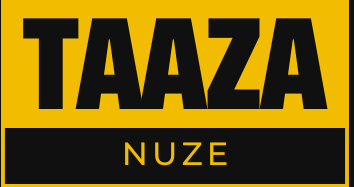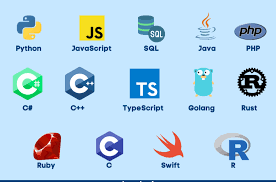Programming languages are tools to create software, apps, and websites. Each language has a specific role, making it essential to know which language to use and when. This article explores common programming languages and explains their roles in simple terms.
1. Python
Python is popular because it is easy to learn and versatile. It helps create websites, automate tasks, and analyze data. Python plays a major role in data science, artificial intelligence (AI), and web development.
- Main Purpose: Python handles data, builds AI models, and develops websites.
- Example Projects:
- Data Analysis: Python can analyze and visualize large datasets.
- Web Apps: Many websites and apps use Python for server-side logic.
2. JavaScript
JavaScript is vital for websites. It adds interactivity, so users can click buttons, scroll through pages, or play videos. JavaScript runs directly in browsers, allowing quick updates to websites without reloading pages.
- Main Purpose: JavaScript enhances website interactivity and creates web applications.
- Example Projects:
- Interactive Website: Adding slideshows, forms, and animations to make websites engaging.
- Browser Games: JavaScript helps build simple games that run on browsers.
3. Java
Java powers many large applications, from Android apps to business software. Its “write once, run anywhere” feature allows programs to work on different devices without changes. Java plays a key role in enterprise systems, mobile apps, and games.
- Main Purpose: Java builds scalable software for businesses and apps for Android devices.
- Example Projects:
- Android App: Many Android apps rely on Java to run on different devices.
- Banking Software: Java manages transactions and customer data securely.
4. C and C++
C is a foundational language used in system programming and embedded devices, while C++ builds on C’s features, allowing complex applications. C and C++ manage hardware directly, making them perfect for game engines and operating systems.
- Main Purpose: C and C++ develop high-performance systems and applications.
- Example Projects:
- Game Engine: C++ powers graphics and controls in game engines.
- Operating System: Core parts of operating systems use C to manage hardware.
5. SQL
SQL, or Structured Query Language, is essential for managing data in databases. Every website and app storing information likely uses SQL. This language retrieves, updates, and organizes data in databases, allowing quick access to user and transaction data.
- Main Purpose: SQL manages data in databases for websites, apps, and businesses.
- Example Projects:
- E-commerce Database: SQL stores product details, customer orders, and inventory data.
- Social Media Platform: SQL manages profiles, posts, and user interactions.
6. Ruby
Ruby, especially its framework Ruby on Rails, builds web applications quickly. It is known for ease of use and supports rapid development. Many startups use Ruby for building platforms, as it allows quick testing and launching.
- Main Purpose: Ruby creates fast, scalable web applications.
- Example Projects:
- Social Network: Ruby builds platforms for connecting users, sharing posts, and chatting.
- Online Marketplace: Ruby manages listings, shopping carts, and user profiles.
7. Swift
Swift is Apple’s programming language for building iOS apps. It is fast, secure, and simple, helping developers create iPhone and iPad apps efficiently. Swift is essential for developers focusing on Apple’s ecosystem.
- Main Purpose: Swift builds iOS applications.
- Example Projects:
- Mobile Game: Swift can build games for iPhone and iPad.
- Health App: Swift powers apps to track fitness, calories, and exercise data.
8. PHP
PHP, or Hypertext Preprocessor, manages server-side tasks for websites. It processes forms, manages user accounts, and generates content dynamically. PHP remains popular in website development, powering many platforms, including WordPress.
- Main Purpose: PHP handles backend processes for websites.
- Example Projects:
- Content Management System (CMS): PHP helps create blog platforms and manage posts.
- E-commerce Site: PHP processes orders and manages user accounts.
9. Kotlin
Kotlin, like Java, builds Android apps but with a simpler syntax. Google recommends Kotlin for Android, making it a top choice for mobile development.
- Main Purpose: Kotlin builds Android applications efficiently.
- Example Projects:
- Weather App: Kotlin can build apps displaying weather forecasts and data.
- Recipe App: Kotlin organizes recipes, ingredients, and cooking steps.
10. R
R is a statistical language used in data science and research. It helps analyze, visualize, and interpret complex data, making it essential for scientists and analysts.
- Main Purpose: R analyzes data for scientific and business insights.
- Example Projects:
- Data Visualization: R creates charts and graphs to explain data trends.
- Statistical Analysis: R processes data for research and generates reports.
Choosing the Right Language
Each language serves a purpose. Some languages like Python and JavaScript are versatile, fitting many needs, while others like Swift and R focus on specific areas. Choosing a language depends on project needs, desired platforms, and long-term goals.
Programming skills unlock endless possibilities, from web development to data analysis. By learning each language’s role, you can decide which tools are best for different projects.

